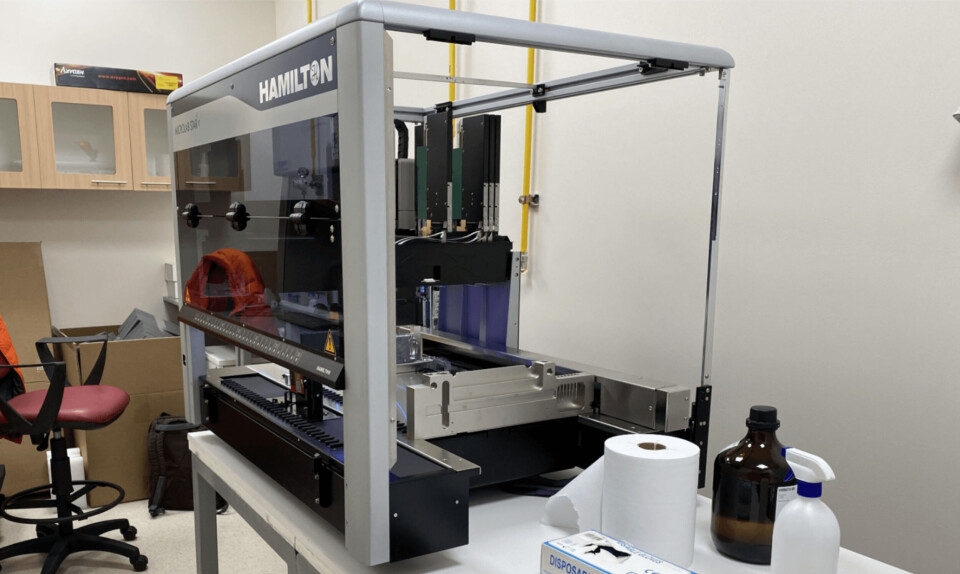
Salmon farmers fund Covid test machine in Chile
Salmon farmers in Chile have contributed 200 million pesos (£198,000) to buy a machine that will strengthen the system for detection of Covid-19 in the Magallanes region in the far south of the country.
The Magallanes Salmon Farmers’ Association has lent the MagEx Starlet robot to the community as part of a public-private collaboration which enables testing to be expanded.
Australis Mar, Bluriver, Cermaq, Multiexport Foods and Nova Austral have all contributed to the funding of the machine, which automatically extracts genetic material from 96 samples at once.
Testing bottleneck
It has been installed in the Teaching Assistance and Research Centre (CADI) of the University of Magallanes, which already has a similar machine used to test the samples.
CADI director Dr Marcelo Navarette said the machine could be set different tasks.
“In this case, as the identified bottleneck was the extraction process, the robot was chosen to automate a process that is very intense in requiring man hours and human resources,” said Navarette.

Collaboration
Carlos Odebret, president of the Magallanes Salmon Farmers’ Association, said arranging for the machine to arrive in Punta Arenas had required a lot of coordination with the university and health officials.
“I want to highlight collaboration, and for what is coming into the future we are going to need collaboration and the salmon industry is available for that,” said Odebret.
“The most important thing is to get out of this situation soon and what we are doing is contributing with a small grain of sand for the Magallanes region.”
The Magallanes Salmon Farmers’ Association is making the MagEx Starlet robot available to the local community through a loan with the University of Magallanes, within the framework of an alliance that seeks to enable research in molecular biology in marine fauna once the pandemic crisis has passed.




















































